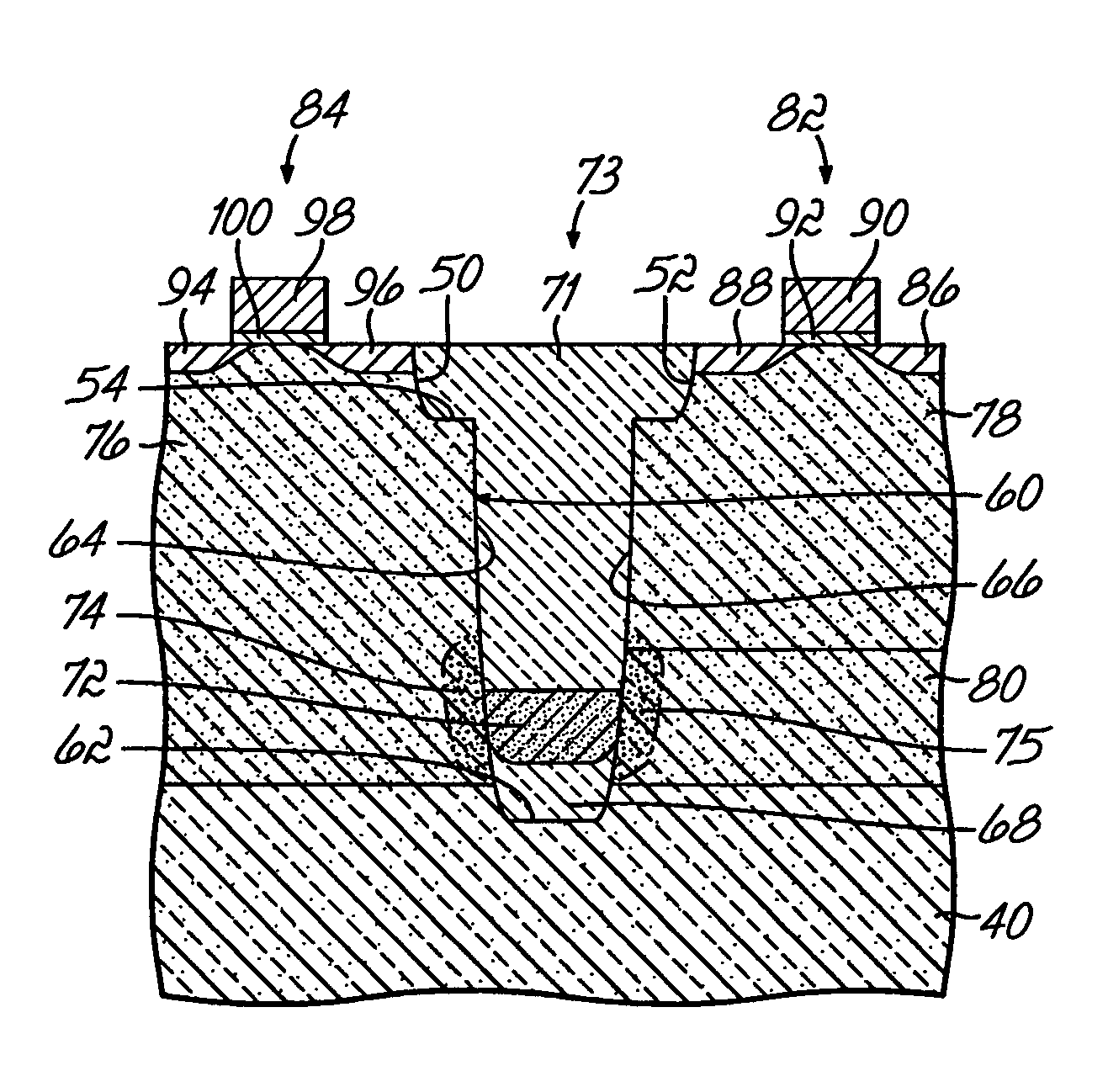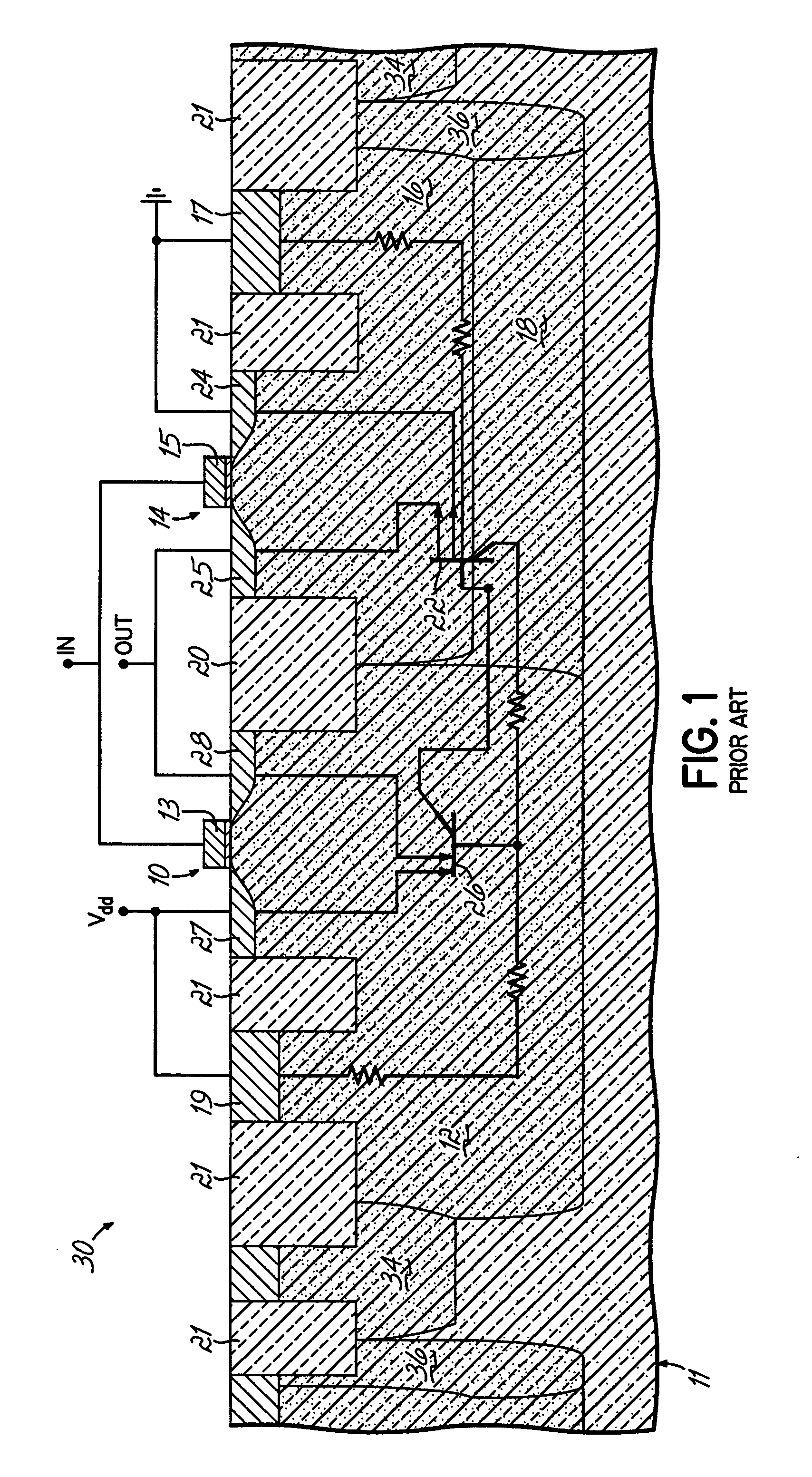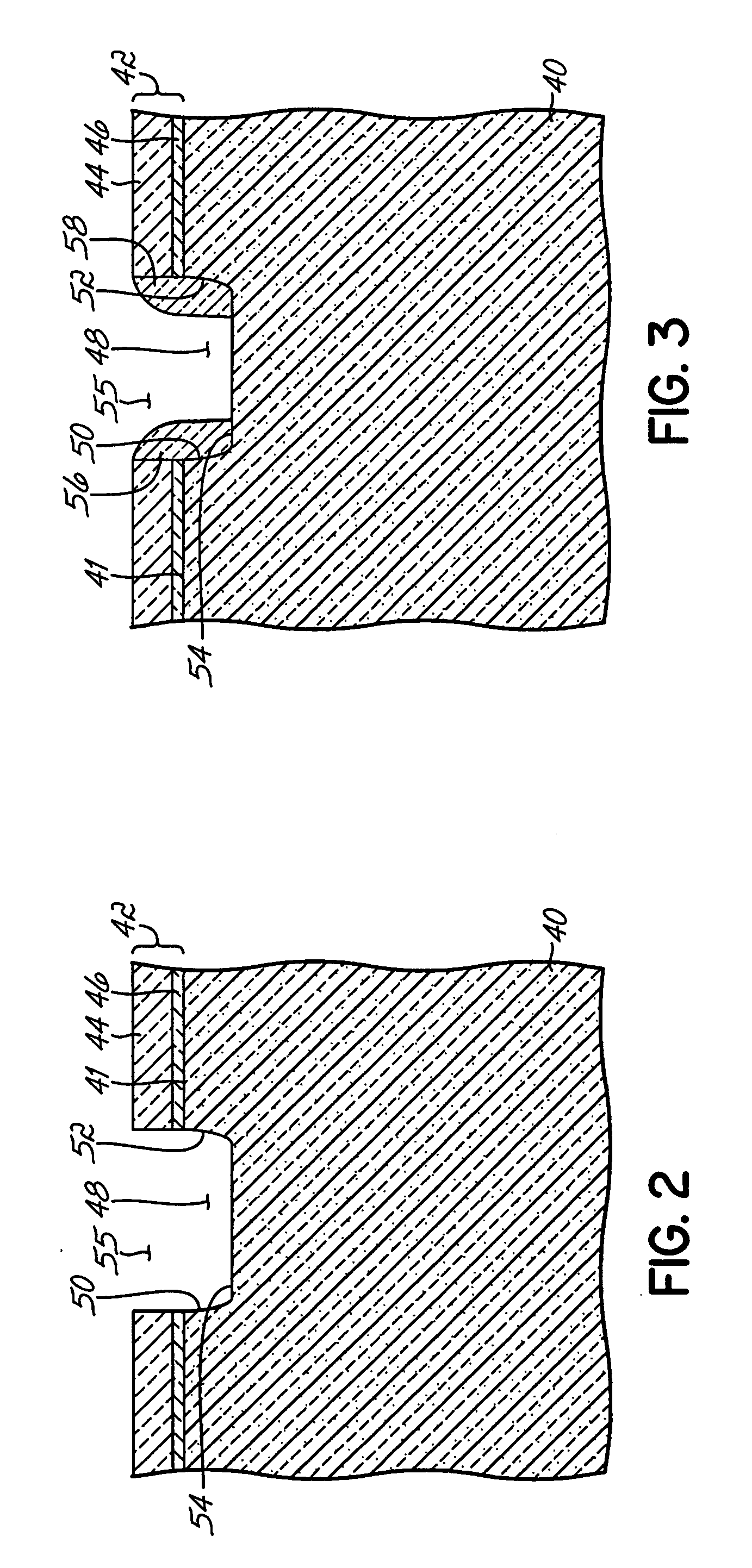Methods and semiconductor structures for latch-up suppression using a conductive region
a technology of conductive region and semiconductor structure, which is applied in the direction of semiconductor devices, basic electric elements, electrical apparatus, etc., can solve the problems of circuits that cannot be easily replaced, circuit failure of bulk cmos devices, and significant issue of bulk cmos technologies, so as to improve latch-up immunity or suppression, the effect of retaining cost effectiveness
- Summary
- Abstract
- Description
- Claims
- Application Information
AI Technical Summary
Benefits of technology
Problems solved by technology
Method used
Image
Examples
Embodiment Construction
[0020] The present invention provides an isolation region that limits the effect of the vertical parasitic NPN structure and the lateral parasitic PNP structure responsible for latch-up in triple-well bulk CMOS devices. The invention is advantageously implemented in the context of bulk CMOS devices where pairs of N-channel and P-channel field effect transistors are formed adjacent to each other in a P-well within an N-band and an N-well, respectively, and the P-well is isolated from the N-well by a shallow trench isolation (STI) region. Specifically, the latchup immunity of a standard bulk CMOS triple well structure is improved by modifying the STI region with a conductive region or bridge that operates to significantly reduce the susceptibility to latch-up. The present invention will now be described in greater detail by referring to the drawings that accompany the present application.
[0021] With reference to FIG. 2, a bulk substrate 40 of a monocrystalline semiconductor material ...
PUM
 Login to View More
Login to View More Abstract
Description
Claims
Application Information
 Login to View More
Login to View More - R&D
- Intellectual Property
- Life Sciences
- Materials
- Tech Scout
- Unparalleled Data Quality
- Higher Quality Content
- 60% Fewer Hallucinations
Browse by: Latest US Patents, China's latest patents, Technical Efficacy Thesaurus, Application Domain, Technology Topic, Popular Technical Reports.
© 2025 PatSnap. All rights reserved.Legal|Privacy policy|Modern Slavery Act Transparency Statement|Sitemap|About US| Contact US: help@patsnap.com



